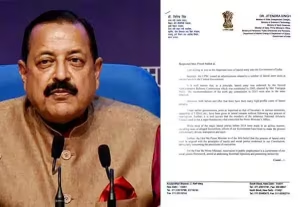Ramadan 2025: How Diabetes Patients Can Fast Safely? Doctors Share 5 Must-Follow Tips
Ramadan 2025: Ramadan is a sacred month in Islam, and its significance is recognised worldwide. Many individuals, including diabetes patients, may wish to observe fasting during Ramadan 2025. However, managing diabetes while fasting requires careful planning to maintain stable blood sugar levels. To ensure a safe fasting experience, doctors recommend five essential tips that help diabetes patients maintain their health while observing Roza.
Why Fasting Can Be Challenging for Diabetes Patients
During Ramadan 2025, fasting hours vary based on sunrise and sunset. From Sehri (pre-dawn meal) to Iftar (breaking fast at sunset), no food or drink is consumed. This extended period without eating can impact the blood sugar levels of diabetes patients, potentially leading to hypoglycemia (low blood sugar) or hyperglycemia (high blood sugar).
Experts suggest that diabetes patients can fast safely if they follow certain precautions. Consulting a doctor before Ramadan 2025 is crucial, as fasting may require adjustments to insulin doses or medication. Here are five must-follow tips for managing diabetes during Ramadan.
1. Monitor Your Blood Sugar Regularly
Doctors stress that diabetes patients must frequently check their blood sugar levels while fasting. Monitoring is essential, especially during Sehri (before sunrise) and Iftar (after sunset), to prevent sudden spikes or drops. If blood sugar falls below 70 mg/dL or rises above 300 mg/dL, fasting should be discontinued immediately to avoid serious health risks.
2. Choose Fiber-Rich Foods for Sehri
What you eat during Sehri plays a vital role in sustaining energy throughout the fasting hours. Diabetes patients should include high-fiber foods like whole grains, lentils, vegetables, and nuts. Fiber slows digestion, preventing sudden blood sugar spikes and keeping you fuller for longer. Doctors also recommend avoiding sugary foods and refined carbohydrates at Sehri, as they can cause rapid fluctuations in blood sugar levels.
3. Stay Hydrated and Avoid Dehydration
Diabetes patients are at higher risk of dehydration, which can worsen blood sugar control. During Ramadan 2025, drinking plenty of water between Iftar and Sehri is essential. Avoid sugary drinks and caffeinated beverages, as they can lead to dehydration and unstable blood sugar levels. Herbal teas, especially cinnamon tea, may help in managing insulin levels and controlling hunger.
4. Maintain a Light Exercise Routine
Fasting can cause fatigue, but light physical activity can help maintain energy levels. Doctors suggest gentle exercises such as walking, stretching, or yoga poses like Dhanurasana, Balasana, and Mandukasana for diabetes patients. Strenuous workouts should be avoided, as they can lead to low blood sugar and weakness.
5. Prioritise Sleep for Better Blood Sugar Control
A healthy sleep cycle is essential for diabetes patients during Ramadan 2025. Sleep deprivation can affect blood sugar regulation and lead to increased hunger cravings. Doctors recommend at least 7 to 8 hours of rest to support digestion, metabolism, and overall health while fasting.
Observing Ramadan 2025 with diabetes is possible with the right precautions. Consulting a doctor, maintaining proper hydration, eating balanced meals at Sehri and Iftar, and monitoring blood sugar levels regularly are crucial steps. By following these expert-recommended tips, diabetes patients can safely fast while protecting their health.
Disclaimer: The advice and suggestions mentioned in this article are for general informational purposes only. They should not be considered professional medical advice. If you have any health concerns, always consult your doctor before making any changes to your routine.






